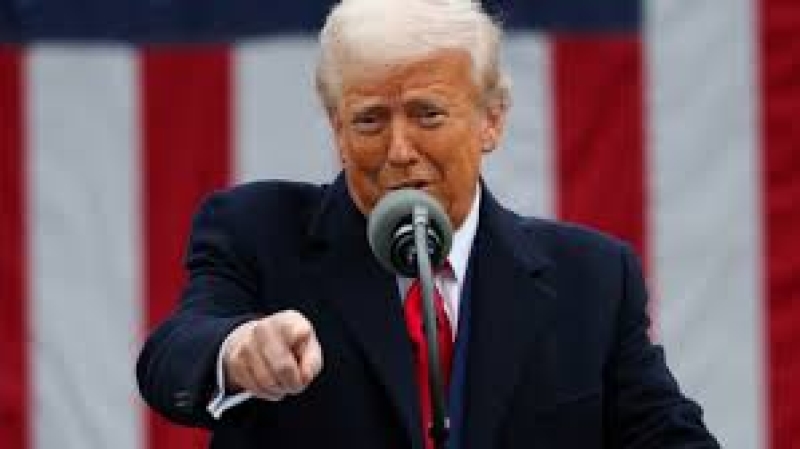- India Sees 9% Drop in Foreign Tourists as Bangladesh Visits Plunge |
- Dhaka Urges Restraint in Pakistan-Afghan War |
- Guterres Urges Action on Safe Migration Pact |
- OpenAI Raises $110B in Amazon-Led Funding |
- Puppet show enchants Children as Boi Mela comes alive on day 2 |
Trump Agrees to Suspend Addt’l Tariffs on Bangladesh

In a major development for international trade, US President Donald Trump has agreed to suspend additional tariffs on Bangladesh, following a formal request from global leaders, including Dr. Muhammad Yunus, the Chief Advisor to Bangladesh's Interim Government.
The decision comes after a letter, sent on April 7, urged President Trump to reconsider the substantial increase in tariffs, which had put a strain on global trade and Bangladesh’s export economy. The suspension provides temporary relief for Bangladesh, which had been facing a proposed 37% tariff on its exports to the United States, especially impacting sectors like ready-made garments.
In the letter, Dr. Yunus, alongside other international leaders, highlighted the economic challenges posed by the tariffs, particularly on Bangladesh’s export sector. He requested a three-month suspension to allow the country time to adjust its tariff policies and better balance its trade structure. “We seek a temporary suspension to help Bangladesh strengthen its economy and improve our trade relations,” Yunus wrote.
In response, the US administration confirmed the suspension of tariffs on all requesting countries, except China, for three months. This move has been hailed as a diplomatic victory for countries seeking more equitable trade policies and is seen as a positive development for Bangladesh's export-driven economy.
Economists and business leaders have welcomed the decision, viewing it as a much-needed reprieve. Dr. Ahsan H. Mansur, Executive Director of the Policy Research Institute of Bangladesh, called it a "positive step" for exporters, particularly in the ready-made garment sector, which constitutes a significant portion of Bangladesh's exports to the US.
Rubana Huq, former president of the Bangladesh Garment Manufacturers and Exporters Association (BGMEA), expressed hope that the suspension would allow Bangladesh to realign its strategies for long-term trade stability. “This is an opportunity to negotiate and secure better terms for our exports,” Huq said.
While the suspension offers crucial breathing room, experts caution that the relief is temporary. They stress the importance of using this period to intensify diplomatic efforts and secure a more permanent resolution. The Ministry of Commerce of Bangladesh has announced plans to send a high-level delegation to Washington, D.C., next month to negotiate terms that will extend beyond the three-month suspension.
Ultimately, the suspension of additional tariffs offers Bangladesh’s exporters a crucial opportunity to adapt to the changing trade landscape and engage in constructive dialogue with the US administration. With focused diplomacy, Bangladesh hopes to secure long-term benefits for its export sector and strengthen its global trade position.

